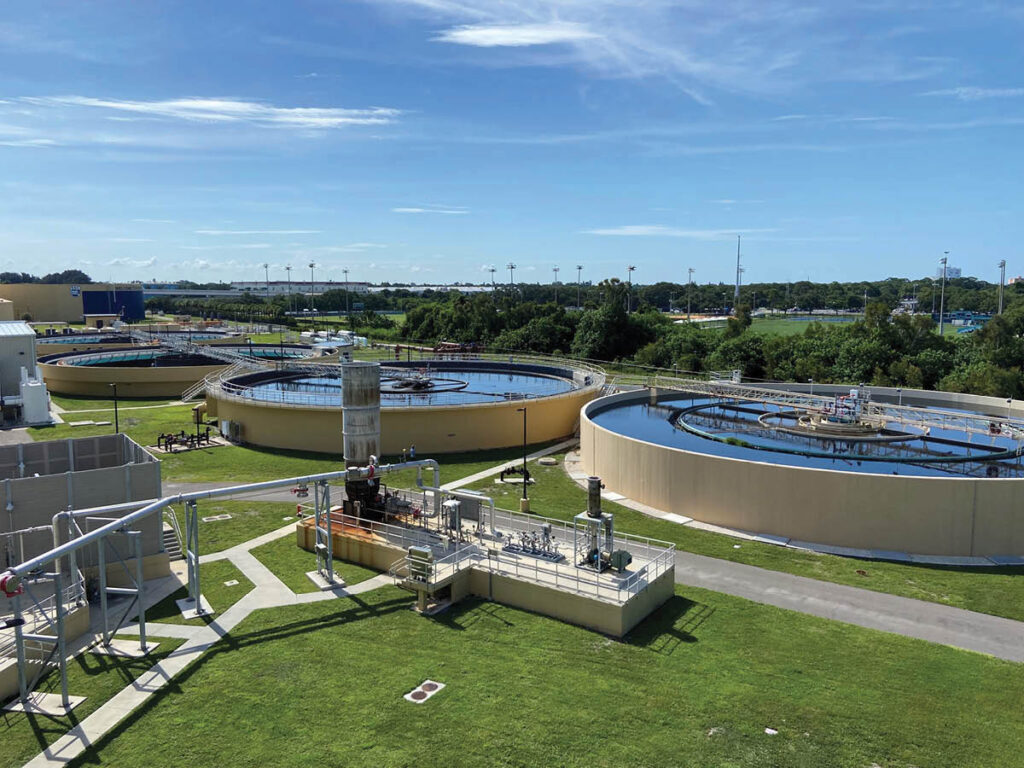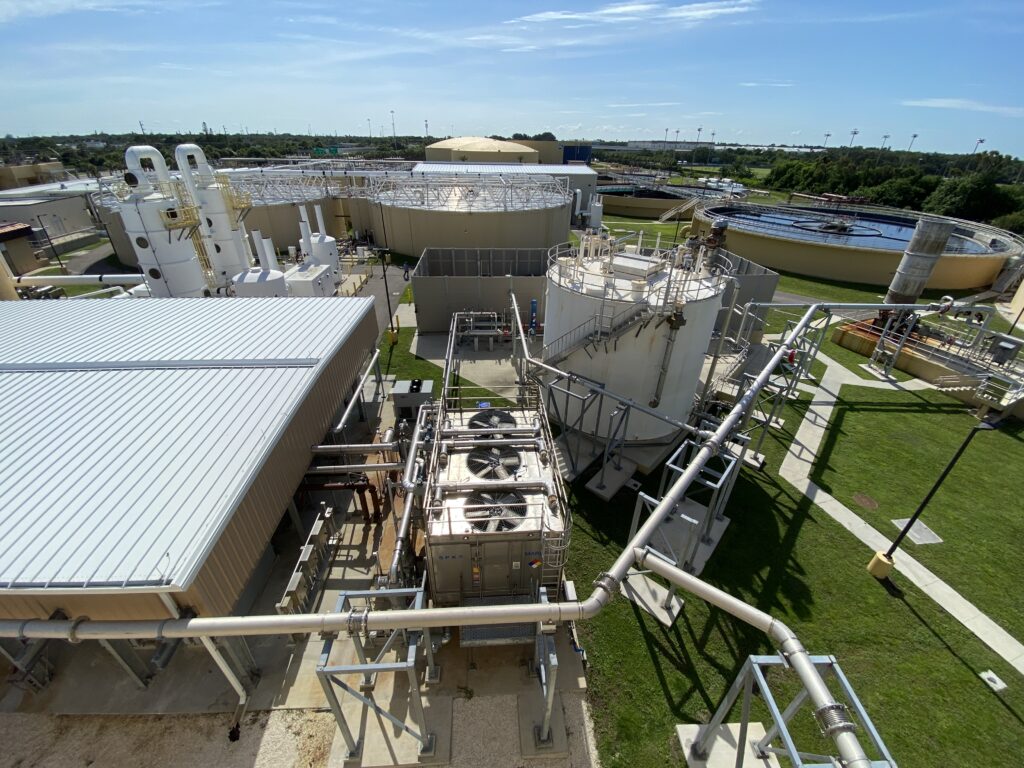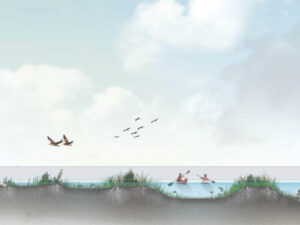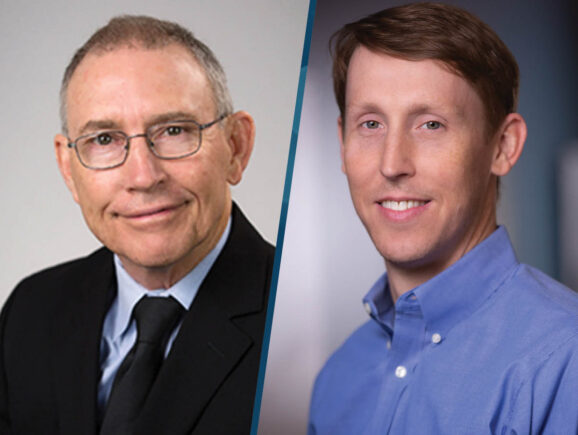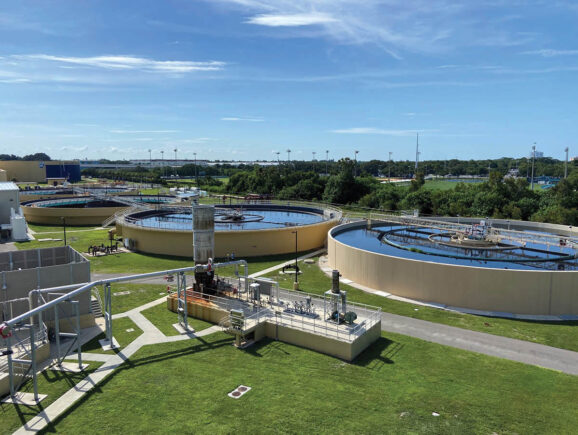Coastal Resiliency: Protecting Critical Infrastructure in Florida
Freese and Nichols is working on Coastal Resiliency projects for local, state and federal clients in Florida, Louisiana and Texas. We also have a long history of protecting the livelihoods and quality of life for those who live close to the water, both upland and coastal. These coastal communities, along with the built and natural infrastructure that surround them, are the focus of our Coastal Resiliency Initiative. We are building on long-standing client relationships and projects for local, state and federal clients along the Gulf of Mexico and the East Coast.
Critical coastal infrastructure, such as wastewater treatment facilities, are particularly susceptible to coastal flooding because they are typically located at low elevations.
For Craig Wells, Client Services Manager in Florida, identifying critical infrastructure components that are exposed to sea level rise is his area of expertise. He has led climate vulnerability assessments for 28 coastal facilities, with the latest being the Southwest Water Reclamation Facility in St. Petersburg, Florida.
“We are assessing the vulnerability of the facility by looking at storm surge projections through the year 2050 incorporating predicted sea level rise,” Craig said. “The goal is to create a road map to resiliency for the facility, as well as a document that can be used to acquire funding for the design and construction of requisite resilience measures.”
This kind of resiliency seeks to harden a facility against projected storms over the lifespan of the facility through the implementation of resilience measures. The best suite of resilience options for a specific facility is determined through a benefit/cost analysis as part of the facility vulnerability assessment. Once the measures are implemented the facility will be climate resilient, having the ability to operate and bounce back in the face of rising seas, hurricanes, storm surge over its planned operational life.
“It could take weeks, possibly months, to get a water/wastewater facility back online after a major flood,” Craig said. “A community not having the ability to make fresh water or to treat sewage would be uninhabitable.”
Craig has given numerous presentations on creating a path to climate resilience for coastal treatment facilities including presentations at six different statewide water conference, having authored “Creating Climate Resilient Water Utilities”. An example he uses is the Bethune Point Water Reclamation Facility Resiliency Plan that Freese and Nichols completed for the City of Daytona Beach, Florida.
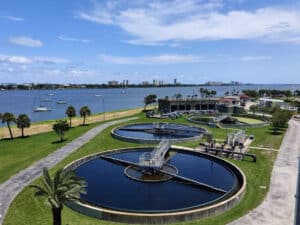
City of Daytona Beach, FL
During Hurricane Matthew in 2016, the facility power was disrupted, and an emergency generator failed. This led to the disruption of the UV disinfection process and 14 million gallons of partially treated wastewater entered the Halifax River in Daytona Beach.
Our vulnerability assessment for Bethune established critical flood elevations, identified key assets that would be impacted by flooding, provided a technical memorandum containing hardening/resilience recommendations and included a benefit/cost analysis to establish a “Road to Resiliency” for the facility.
“With the versatility of our projects, coastal resiliency brings in almost every single practice at Freese and Nichols,” Craig said. “These projects are dynamic, and I see collaboration between our practices increasing as we take on additional resiliency projects.”
Coastal Resiliency Initiative
Freese and Nichols Coastal Resiliency Initiative aligns with our vision of making a positive impact on the world we inhabit. It’s also linked to our corporate responsibility structure, which aims for a balanced strategy towards community guardianship. This involves consistent evaluation of metrics, feedback from clients and employees, and ongoing examination of environmental and societal needs.
Our coastal clients and communities are dealing with a multitude of challenges such as erosion, rising sea levels, increased storm surges, and more frequent disasters. Our aim is to help them tackle these problems to ensure the safety of their residents and the protection of their assets.


